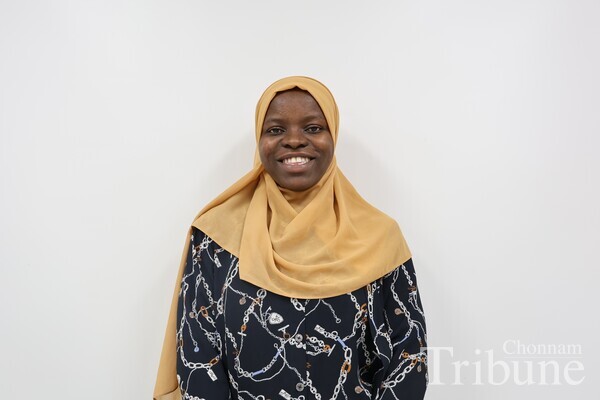The Chonnam Tribune features this section to share the voices of foreign students at Chonnam National University. For this issue, we interviewed three students about traditional games in their countries. This gives readers the opportunity to share the voices of and learn from those who have experienced things that most other readers have not. – Ed.

What is the most popular traditional game in your country?
India is huge. There are many traditional games that are very popular, but I think kabaddi is the most popular. Kabaddi is mostly played in high schools, and they have competitions for students around 11 to 17 years old. In Kabaddi, an attacker needs to touch a defender and return to their area to win. It’s a very energetic and tough game that requires a whole field to play in.
Can you share a special memory of playing a traditional game in your country?
I have a memory about sagargote. Sagargote is one of the very old traditional games and is popular among girls and women. You play it with five stones or pebbles of the same size. When I was young, I used to visit my grandma’s house a lot. There, on some holidays, my grandma used to play it with me. She taught me how to play, but I could never beat her.
Do people still enjoy playing traditional games?
Yes, but not as much as in the past. Since I live in the city, I don’t have the right environment to play most of these games. Sagragote is mostly played indoors, yet I still don’t play as much as I used to. There’s also game called marbles — I don’t think anyone plays it in the city these days. It requires soft ground to make a small pit. So, people might still play these games in villages.

What games are commonly played in your country?
In our country, children play many kinds of games like hide and seek, where one person is the seeker and the others must hide somewhere. The seeker counts to 10, then searches all the hiding places in the area. This game is called saklambaç in Turkish. I enjoyed playing it because I didn’t have any electronic devices as a child, and we usually spent time outside on the street from morning to evening.
What is the most representative traditional game from your country?
One of the main traditional games is oil wrestling. It is a sport where two people cover their bodies with oil and try to make each other fall to the ground. The goal is to bring your opponent down in order to win. This game is one of the most symbolic and historic Turkish traditions, dating back to the Ottoman Empire — long before the Republic of Turkey was founded.
Did you learn any lessons from playing traditional games?
When playing saklambaç, we need to focus on trust and belief. When we played before, some players revealed the hiders’ locations to the seeker. That made it easier for the seeker to find everyone. So, we need to trust each other and hide with people we can rely on. That way, we can all stay safe and win together. In this game, trust is really important.

What games do you typically play in your country?
Nigeria is a diverse country with many cultures. I’m from Offa, and the game we play in our hometown is called ijakadi. It is similar to wrestling, but it is not about fighting. It is more about love, justice, and discipline—symbolic of how we don’t accept injustice. That is what this game truly stands for.
Can you tell us about some traditional games you used to play as a child?
Suwe is one of the games I loved playing while growing up. It is a very common traditional Nigerian children’s game, especially popular among the Yoruba people. It’s usually played on the ground, where we draw a grid and two people play by taking turns jumping through the squares.
What makes your country’s traditional games unique compared to others?
I think it is not just about playing games. It is about sharing values, morals, and building relationships. Many Western countries don’t have the same sense of community and relationships that Nigerians share. Winning is about sharing joy, friendly rivalry, and the strength that these games bring to us. I believe people from other countries would find this very interesting.
By Kim Ye-Ji, Reporter

